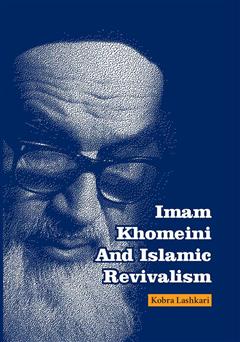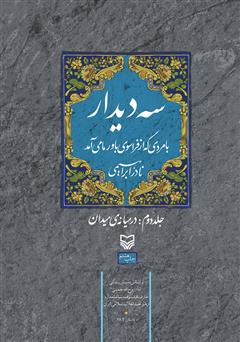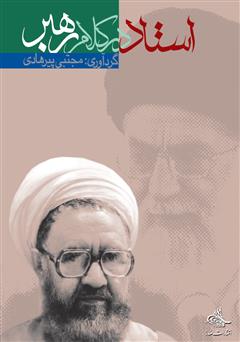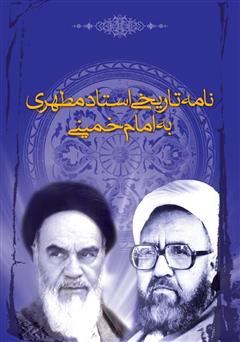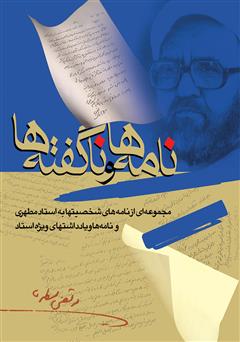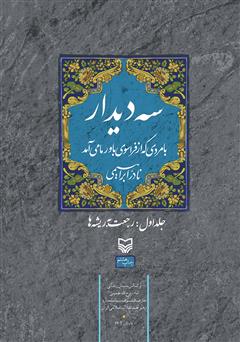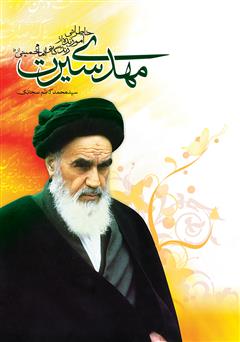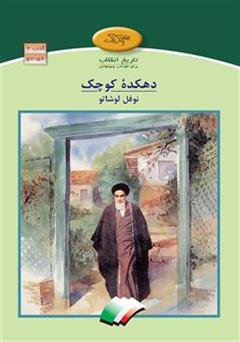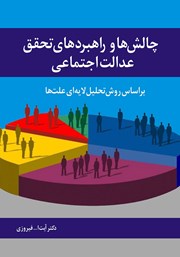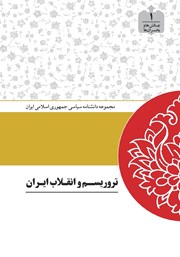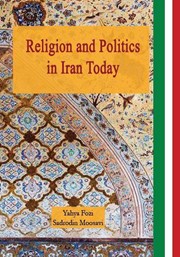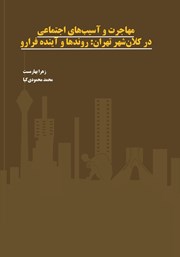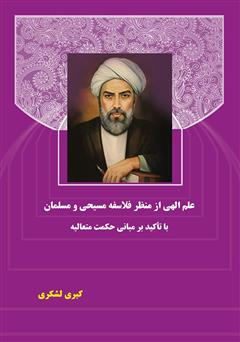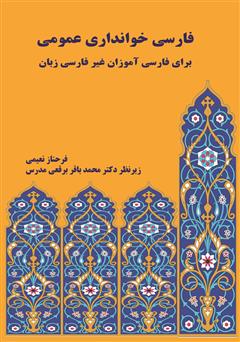معرفی و دانلود کتاب Imam Khomeini And Islamic Revivalism (امام خمینی و احیاگرایی اسلامی)
برای دانلود قانونی کتاب Imam Khomeini And Islamic Revivalism (امام خمینی و احیاگرایی اسلامی) و دسترسی به هزاران کتاب و کتاب صوتی دیگر، اپلیکیشن کتابراه را رایگان نصب کنید.
معرفی کتاب Imam Khomeini And Islamic Revivalism (امام خمینی و احیاگرایی اسلامی)
کتاب Imam Khomeini And Islamic Revivalism (امام خمینی و احیاگرایی اسلامی) نوشتهی کبری لشکری، نقش امام خمینی (ره) بر بیداری اسلام را مورد بررسی قرار میدهد.
جهانی بودن آموزههای اسلامی جهت تأمین نیازهای زندگی انسان و مدیریت جامعه بشری همواره مورد توجه محققان دینی بوده است. در همین راستا، حفظ و گسترش اسلام ذهن علما را در طول تاریخ تحت تأثیر قرار داده، به همین دلیل، احیای ارزشها و اندیشههای اسلامی به عنوان یک مسئله مهم و بار سنگین بر دوش علمای مسلمان شناخته شده است.
در بین احیاگران، تنها امام خمینی (ره) به دلیل موفقیتش در تأسیس یک حکومت اسلامی دارای مقام بالایی بود. ایشان موفق شد تا آنچه که احیاگران اسلام از قرن هجدهم تنها به صورت تئوری انجام دادند را هم تئوری و هم عملی به اجرا درآورد.
امام خمینی (ره) نظریه ولایت فقیه را در ابعاد سیاسی، اجتماعی و حکومتی شکل و توسعه داد، که با بیشتر پیشینیانش متفاوت بود. او اعتقاد به حق انحصاری علما در مدیریت سیاسی کشورهای اسلامی داشت. همچنین امام خمینی (ره) نخستین فقیه بود که خواستار تأسیس حکومت اسلامی شد و هم برای علما و هم برای افراد دیگر این امر را ضروری دانست. او در آثار حقوقی و سیاسی خود معتقد بود که تنها حکمرانی فقها شکل قانونی و قابل قبولی در دوره غیبت دارد.
The universality of Islamic teaching in fulfilling the needs of human life and managing human society have always been an interest of religious scholars and researchers. In this regard, preservation and expansion of Islam has preoccupied Ulama’s mind throughout the history. For this reason, the revival of Islamic values and thoughts has been recognized as a crucial issue for and a heavy burden on Muslim's scholars.
This book deals with the influence of ImamKhomeini on Islamic revivalism in Islamic World. Among revivalists, Imam Khomeini was outstanding due to his success in establishing an Islamic government. It can be said that, what Islamic revivalists have done just in theorizing revivalism since the eighteenth century, Imam Khomeini attempted to put it into both theory and practice. Thus, his role in development and evolution of Islamic movements is extraordinary.
Imam Khomeini formed and developed the Velayat-e Faqih theory in political, social, and governmental dimensions, which was different from the most of his predecessors. He believed to exclusive right of the ulama in political administration of the Islamic countries. He also was the first jurist to call for establishment of Islamic government and made it a must for both ulama and individuals (Khomeini, 2005). He also represented an absolute dimension of authority and guardianship for the jurist as a leader of Islamic community. Imam Khomeini in his juridical and political works illuminated that only governance of jurist is legitimate and acceptable form of government in the occultation era.
در بخشی از کتاب Imam Khomeini And Islamic Revivalism (امام خمینی و احیاگرایی اسلامی) میخوانیم:
Islamic revivalism and the cultural, intellectual, political, and social movement has rooted in the eighteenth century. The doctrine of pure Islasm and primary Sunnah possess the elements of civilization making such as: emphasize on intellectual, knowledge, unity, the culture of hard working, equality and justice. In fact, Islam is not just a religion; Islam is the creator and the eternal essence of a world-wide civilization with a long history, which in the past was dominated by the expansion of the realm to half the world, and in terms of science and knowledge, and culture was richer than the West. Culture and civilization are exported from the East to the West.
Now the question is that, what has happened for the Islamic world, why they has stagnated and degenerated in the present day? It should be noted that, an investigation on this issue shows that the factors that led to this slump has been occurred due to both the internal elements and the external factors.
فهرست مطالب کتاب
Introduction
CHAPTER 1: The Muslim Revivalist Movements: The Role of Imam Khomeini in its Devolopment and Continuty
Definition of terms
The most prominent Muslims revivalists in contemporary era
Legal Reform
The History of Revivalism in Iran
CHAPTER 2: VELAYAT_E FAQIH THEORY (ISLAMIC GOVERNMENT) , DEFINITION AND THE FOUNDATION OF ITS LEGITIMACY
Definition of Velayat-e Faqih
1. The literal meaning of Velayat-e Faqih
2. The terminological definition of Velayat-e Faqih
The foundation and Ideological Basis of “Velayata-e Faqih”
1. The Foundation of the Legitimacy of the Prophet’s Government
2. The Basis of the Legitimacy of the Infallible Imam’s Velayat
Imam Khomeini’s Philosophical and Mystical perspective of Imamate
The Intellectual reasons on Imamate
The transmitting reasons on Imamate
The Legitimacy of the Velayat-e Faqih in Imam Khomeini’s View
a. The Intellectual reasons on velayat-e faqih authority
b. The transmitting reasons on velayat-e faqih authority
Mystical, Juridical, Theological and Philosophical Proof of Principle religious authority
1. Mystical Proving of the religious sovereignty (velayat)
2. Juridical Proving of the religious authority (velayat)
a. The necessity of defense the principle of Islam
b. Prohibition helping the oppressive
3. Theological Proving of the Religious Sovereignty (velayat)
Benevolence (Lotf) Rule
4. Philosophical Proving of the religious Sovereignty (velayat)
CHAPTER 3: THE ROOTS OF IMAM KHOMEINI’S THOUGHT TOWARD FORMATION OF VELAYAT_E FAQIH THEORY: INTELLECTUAL AND SOCIAL DIMENSIONS
1. The Socio-Political Factors that Motivate Imam Khomeini to the Formation of Velayat-e Faqih Theory
Family Background
The Educational Background
1. The Early Age and his Education at Khomein Maktab
2. Imam Khomeini at Arak seminary
3. Epistemic Foundations of Imam Khomeini's thought and Schematization at Qom Seminary
The Band Tobacco
The Constitutional Revolution
Emergence of Disagreement among Revolutionaries
Sheikh Fazlullah Nouri’s theory of Constitutional Government
The Social Activities in Reza Shah’s dynasty
The Reza Shah’s Modernization Policy
The Ulama and Reza Shah Policy
Imam Khomeini Social Activities in Reza Shah Era
Social Activities in Mohammad Reza Shah Rule
Imam Khomeini Social Activities during Mohammad Reza Shah Rule
The Series Events leading to 15 Khordad Uprising and Imam Khomeini’s Exile
The Intellectual Factors That Motivate Imam Khomeini To the Formation of Velayat-e Faqih Theory
1. The Primary Ulama’s Thought on Formation of Velayat-e Faqih Theory at 3th, to 8th centuries
Sheikh Kuleini’s Thought About The Velayat-e Faqih
Sheikh Mofid’s Thought About The Velayat-e Faqih
Sheikh Tusi (385-460AH)
Allameh Helli (648-726AH)
2. The Recently Ulama’s Thought on Formation of Velayat-e Faqih Theory at 10th, to 13th centuries
Muhaqiqe Karaki (868-940AH)
Fazil Naraqi (1185-1245AH)
Sheikh Muhammad Hasan Najafi (1192-1266)
Sheikh Ansari (1214-1281AH)
3. The Contemporary Ulama’s Thought on Formation of Velayat-e Faqih Theory at the late of 13th, and 14th centuries
Ayatollah Mirza Mohammad Hossein Naeini (1276-1355)
Ayatollah Sayid Husain Boroujerdi (1292/1875-1380/ 1961)
The Major internal School of Thought That Influence on Imam Khomeini’s approach
1. The Effect of School of Fiqh on Imam Khomeini
2. The Effect of School of Philosophy on Imam Khomeini
a. The Idea of Velayat-e Faqih in Mulla sadra’s Philosophy
b. The Unity of Politics and Religion Based on Wahdat-e Wujud Principle of Al-Hikmat al-Muta‘aliyah
3. The Effect of School of Mystic on Imam Khomeini
The Formulation of Velayat-e Faqih Theory by Imam Khomeini
Imam Khomeini’s Exile to Najaf and The Formulation of Velayat-e Faqih Theory
Shifting in the Imam Khomeini’s Theorizing
Comparative perspective of Imam Khomeini with previous scholars
CHAPTER 4: THE NECESSITY OF ISLAMIC GOVERNMENT BASED ON VELAYAT E FAQIH THEORY IN IMAM KHOMEINI’S APPROACH AND ITS SYSTEMATIZATION
Definition of Islamic government
The necessity of Islamic g overnment
The Necessity for an Executive Power and Administrator in Islam
The Manner of Holly Prophet in Medina
The nature and characteristic of Islamic legislations, and the comprehensiveness of Islamic teaching in fulfilling the needs of human life
The necessity of Defense of Islamic territory and Rescue the Oppressed People
Islamic laws are perpetual, behind the space and time and not belong to the Holy Prophet era
Imam Khomeini and the Characteristics of Islamic Government
The Allah's Sovereignty and the Role of Islamic Government
The Islamic Republic as the Form of Islamic Government and its Compatibility with Modernity
The Leadership of Velayat-e Faqih in Islamic Government and its Necessity
legitimacy and acceptability of Jurists’ Guardianship in Imam Khomeini’s view
The right of Self-Determination
The People’s Supporting Role and their Majority’s Vote Validity to the Islamic Republic
The Right of People’s Supervision on the Function of Government
The Freedom of Expression and Choice
The authority of Velayat-e Faqih in Imam Khomeini’s perspective
Legitimacy of the Body of Islamic Republic
The criticism on Critics of the Velayat-e Faqih
CHAPTER 5: The Influence of Imam Khomeini’s Velayat-e Faqih on Socio-Political and Cultural Changes in Contemporary Iran
Imam Khomeini’s Position as a Religious Leader
The influence of Imam Khomeini’s Velaya-e Faqih theory on Socio-Political and Cultural changes in Community of Contemporary Iran
The Influence of Imam Khomeini’s Velayat-e Faqih Theory on Social Changes of Contemporary Iran
Establishing justice and Principle of Equality
a. Establishing the Relief Committee well known as Imam Khomeini’s Relief Committee
b. Creating Constructive Jihad
c. The Revolutionary Guards of Islamic Revolution
d. Literacy Movement
Development in the field of modern sciences
Democracy and Freedom
Supporting of Deprived People and Mustazafin
The Influence of Imam Khomeini’s Velayat-e Faqih on Cultural Changes of Community in Contemporary Iran
Propagating the Enjoying Good and Prohibition of Evil
Creating Inner Revolution and Reviving the Culture of Jihad and Martyrdom
Awakening the Spirit of Independence and Self-sufficiency in Muslims
Imam Khomeini addresses Muslims and Islamic countries
Imam Khomeini’s awakening into the scientific seminaries
The influence of Velayat-e Faqih Theory on political changes of Contemporary Iran
Compatibility of Religion and Politics in Imam Khomeini’s approach
Combination of Faith and Unity of the people in political affairs
Islamic Independence base on Neither East, Nor West” Slogan
Imam Khomeini referred to this issue in his last testament
Imam Khomeini’s Important Messages to the Muslim World as the International Doctrine
a. Imam Khomeini’s Message to the pilgrims in Saudi Arabia
b. Imam Khomeini’s enduring Letter to Mikhail Gorbachev
c. Imam Khomeini’s Messages to unity and awakening Muslims
d. Imam Khomeini’s Messages to Support Deprived People of the World and Palestinians
Imam Khomeini’s Model of Establishment of Global Islamic State
Conclusion and summary
REFERENCES
مشخصات کتاب الکترونیک
| نام کتاب | کتاب Imam Khomeini And Islamic Revivalism (امام خمینی و احیاگرایی اسلامی) |
| نویسنده | کبری لشکری |
| ناشر چاپی | انتشارات دانش بنیان مهر |
| سال انتشار | ۱۳۹۸ |
| فرمت کتاب | EPUB |
| تعداد صفحات | 416 |
| زبان | انگلیسی |
| شابک | 978-622-95654-4-5 |
| موضوع کتاب | کتابهای علوم سیاسی، کتابهای آموزش زبان انگلیسی |

